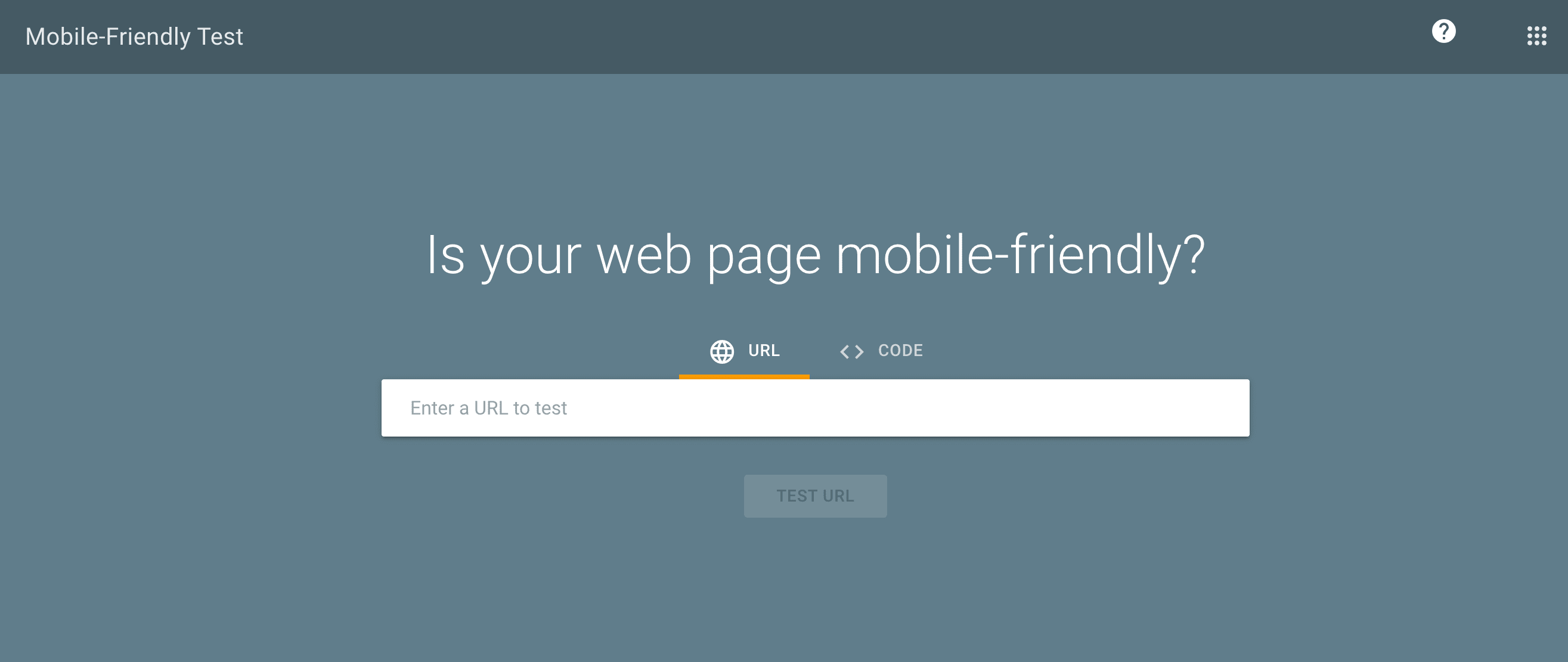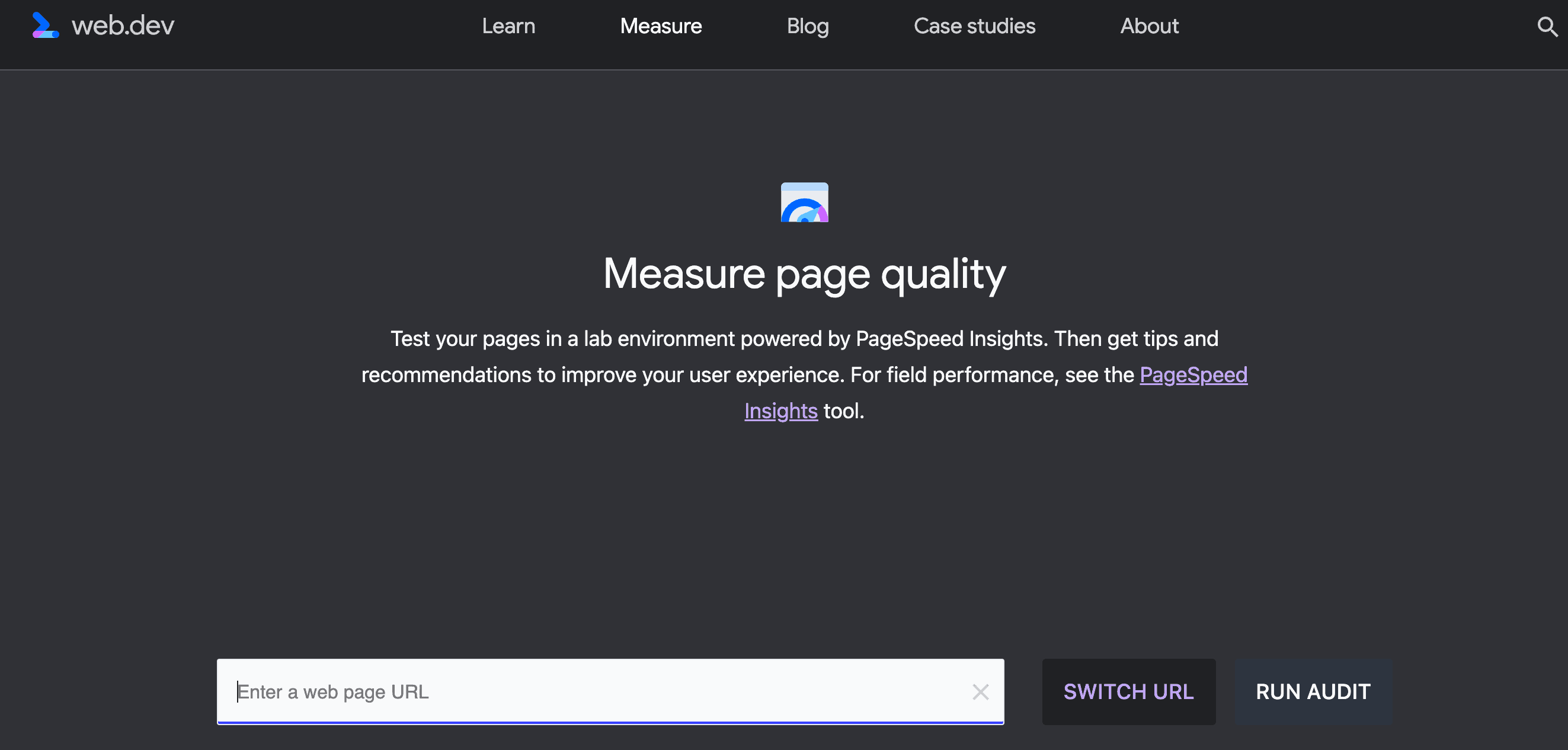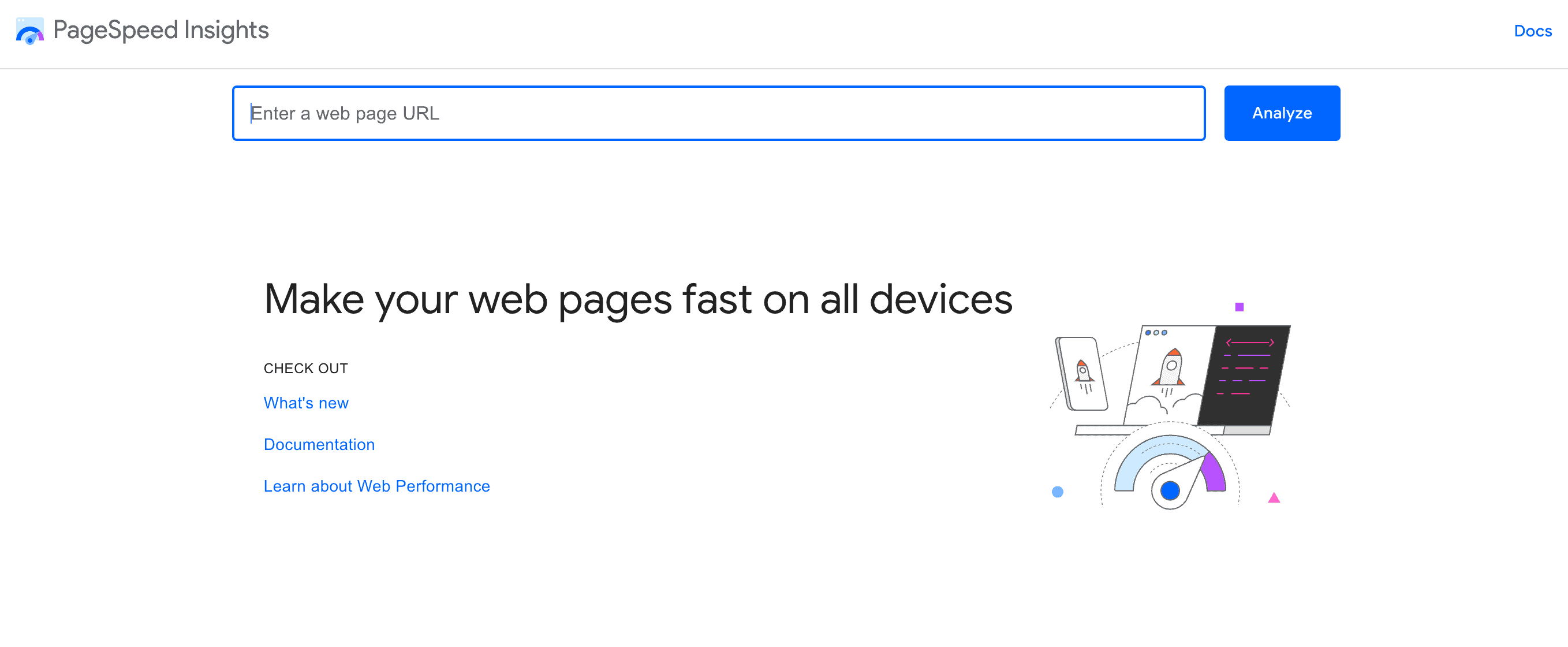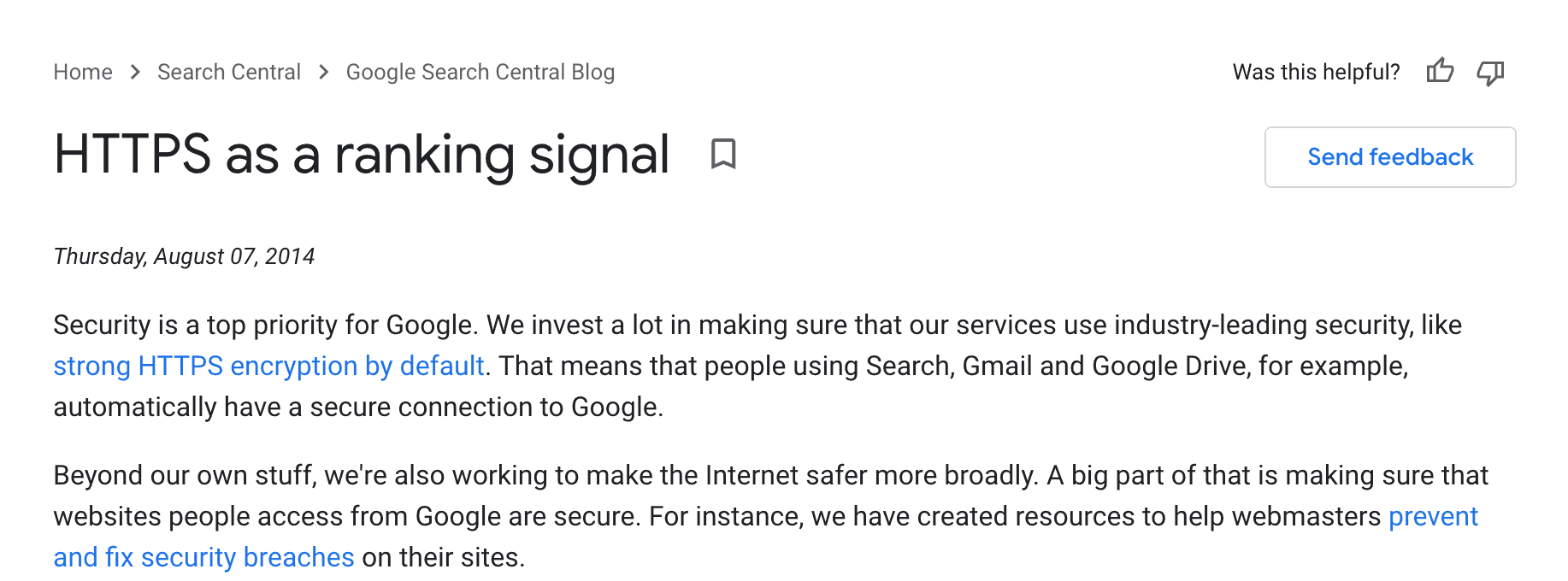
Top SEO Ranking Factors
It's undoubtedly challenging to keep up with all the latest algorithm changes and updates, especially if you're not an SEO specialist.
However, unfortunately, Ignorantia iuris nocet (Latin for "ignorance of the law excuses not") – in other words, you can't plead ignorance as a defense. And it applies to both factors that can get you rank higher and those that can get you penalized.
As such, regardless of whether you're a seasoned SEO pro or just starting out, it's crucial to stay up-to-date with the ranking factors that can impact your website's visibility on SERPs.
Of course, it’s not possible to keep an eye on all of them, as there are over 200 ranking factors (that we know of) used by Google's algorithm. However, if you focus on the most important ones, you'll be in good shape.
Key Takeaways
- Google uses a wide range of signals to determine the ranking of a website in its search results pages. Amongst them is the quality of your website and the amount of content it offers.
- As Google continues to invest heavily in machine learning and RankBrain, their algorithm will become more and more sophisticated, making it more difficult for websites to rank well.
- In order to keep up and to boost your rankings on SERPs, you should make it a priority to create high-quality content, optimize your website's code and architecture, and build backlinks from high-quality websites.
- You should also keep a close eye on your website's performance via Search Console and make necessary changes as necessary.
In this article you can read in depth about:
- Content Quality
- Mobile-Friendliness
- Page Speed
- Security
- Backlinks
- Technical SEO
- Accessibility and Ease of Use
- Providing the Necessary Information
So, let's take a look at the top SEO ranking factors for 2022!
1. Backlinks
The number and quality of backlinks continue to be a major ranking factor.
Backlinks are links from other websites to your website, and they help Google understand the popularity and authority of your site.
However, it's important to note that not all backlinks are created equal. Google gives more weight to backlinks from websites that are relevant to your industry and have a high Domain Authority (DA).
Therefore, you should focus on building backlinks from high-quality websites, rather than on quantity.
To achieve this, you can create informative and shareable content, such as infographics, blog posts, and videos, and reach out to websites in your industry to ask them to link to your content.
You can also participate in guest blogging opportunities and create partnerships with other websites.
Need Us To Cover This? Get In Touch!
2. Content Quality
The quality of your content has always been a significant ranking factor and it will continue to be so in 2022. Google's E-A-T guidelines state that content must be:
- Expert: Content must be written by an expert or someone with knowledge of the subject.
- Authoritative: Content must come from a source that is trustworthy and respected.
- Trustworthy: Content must be accurate, free of errors, and up-to-date.
Content that is high-quality, well-researched, and informative will not only help you rank higher but will also help you build trust with your audience and establish your website as an authority in your industry.
In order to meet these guidelines, your content must also be free of grammatical errors, spelling mistakes, and factual inaccuracies.
3. Technical SEO
Technical SEO refers to the optimization of your website's architecture and code. It's crucial for ranking high on SERPs because a well-optimized website is much easier for search engine crawlers to index and understand.
There are many technical SEO factors that can impact your website's ranking, such as site structure, site speed, schema markup, sitemaps, title tags, meta tags, and redirects.
To optimize your website for technical SEO, you need to make sure that it is well-organized and easy to navigate. You should also create a sitemap and submit it to Google Search Console.
Source: https://developers.google.com/search/docs/advanced/sitemaps/build-sitemap
In addition, you need to ensure that your title tags and meta tags are accurate and informative and that your URLs are clean and descriptive.
You can use Google's Search Console tool to find and fix any technical errors on your website.
Additionally, Google's Lighthouse can help you audit your website's performance, accessibility, and SEO.
4. User Intent - Providing the Necessary Information
Users should be able to easily find your business details, such as your address, phone number, and business hours.
This information needs to be prominently displayed on your website, preferably in the header or footer, so that users can find it fast and without difficulty.
Including your business information on your website is also important for local SEO. When users search for businesses in their area, Google displays a map with the businesses that are closest to the user's location.
Source: https://developers.google.com/search/blog/2022/08/helpful-content-update
Here’s what Google finds “useful” according to their own guidelines:
- Do you have an existing or intended audience for your business or site that would find the content useful if they came directly to you?
- Does your content clearly demonstrate first-hand expertise and a depth of knowledge (for example, expertise that comes from having actually used a product or service, or visiting a place)?
- Does your site have a primary purpose or focus?
After reading your content, will someone leave feeling they've learned enough about a topic to help achieve their goal?- Will someone reading your content leave feeling like they’ve had a satisfying experience?
- Are you keeping in mind our guidance for core updates and for product reviews?
It's also important to ensure that this information is up-to-date, as outdated information can hurt your chances of ranking high on SERPs.
You can use Google My Business to manage and update your business information.
5. Usability, Accessibility and Ease of Use
Users should be able to easily navigate your website and find the information they're looking for without much trouble. As such, it has to be designed with a clean and simple layout.
Source: https://web.dev/measure/
Its navigation needs to be intuitive and well-organized; you can include a search bar to enable users to get what they need quickly and effortlessly.
To make your website more accessible, you also have to make sure that it can be accessed by all users, including those with disabilities.
You can do this by using accessible web design practices, such as high-contrast color schemes, appropriate font sizes, and alt text for images.
6. Page Speed & Core Web Vitals
The speed of your website is also a ranking factor, as it's a key element of user experience. In fact, your conversion rates may drop by around 4.5% on average with each additional second of load time between seconds 0-5.
Source: https://pagespeed.web.dev/
To improve your website's speed, you need to make sure that your pages are lightweight and that your code is clean and well-organized.
You should also avoid using too many plugins and excessive visuals, such as large images and videos, and make sure that your server is able to handle high traffic.
Moreover, you can use a content delivery network (CDN) to improve your website's loading times.
7. Mobile-Friendliness
According to the latest data, over 60% of all Google searches come from mobile devices. And as the number of mobile users continues to grow, it's become increasingly important for websites to be optimized for mobile.
In fact, mobile-friendliness is now a ranking factor for both desktop and mobile searches.
Source: https://search.google.com/test/mobile-friendly
If your website isn't optimized for mobile, it will not only be difficult for users to navigate, but it will also hurt your chances of ranking high on SERPs.
To ensure that your website is mobile-friendly, you need to make sure that it has a responsive design, that all your content can be easily accessed on a mobile device, and that your pages load quickly.
8. Security
As cybercrime continues to grow and more of our daily operations go digital, security has become a top priority for Google, users, and website owners.
In fact, Google now uses HTTPS as a ranking signal, which means that websites that are not secured with an SSL certificate will be at a disadvantage.
Source: https://developers.google.com/search/blog/2014/08/https-as-ranking-signal
HTTPS is a protocol that encrypts data between your website and the user's browser, which makes it more difficult for hackers to intercept and steal sensitive information.
To add HTTPS to your website, you need to purchase an SSL certificate and install it on your server.
You should also keep your website and plugins up-to-date, as out-of-date software is one of the most common ways for hackers to gain access to websites.
Wrapping Up
There you have it – the top SEO ranking factors for 2022. As you can see, some of them, such as content quality and page speed, are nothing new.
However, others, such as mobile-friendliness and security, are becoming increasingly important.
This just goes to show that, despite all the algorithm updates and changes, Google's ultimate goal is still to provide users with the best possible experience.
So, if you want your website to rank high on SERPs, make sure to focus on these ranking factors. And if you need help with your SEO, don't hesitate to contact an experienced digital marketing agency.












